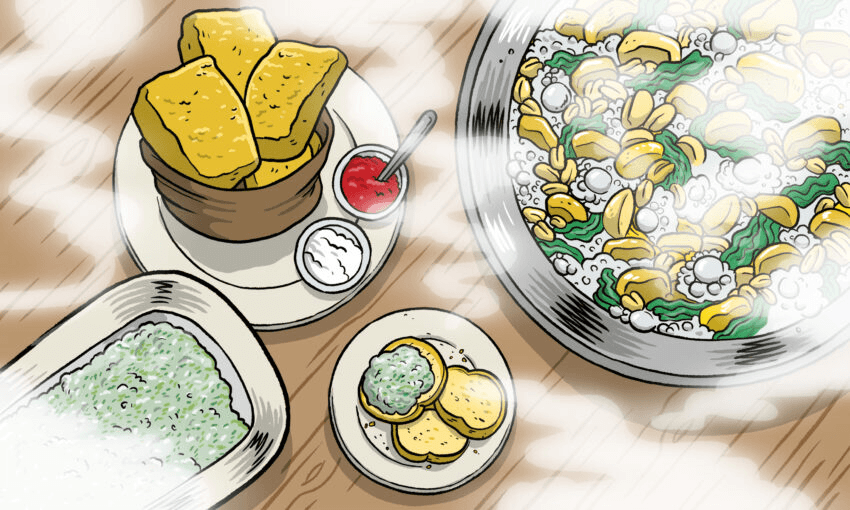It’s long past time we officially recognised the Māori new year on Māori land, writes Laura O’Connell Rapira.
In May, Jacinda Ardern said more public holidays for Kiwis to experience Aotearoa New Zealand is among a number of things the government is “actively considering” to encourage domestic tourism.
With many small businesses struggling to keep their doors open, more public holidays to encourage folks to spend their disposable income exploring our beautiful country is a fantastic idea.
My partner and I recently took a long weekend trip to Kahungunu territory and spent our money on artisan fig products, lunches at local cafés and a visit to the Kororā at the National Aquarium’s rehabilitation centre. I got to see a kiwi for the first time in my life. It was sublime.
But even without the drawcard of a mid-winter public holiday to travel to warmer climates, it’s long past time we officially recognised the Māori new year on Māori land. It has been 33 years since people in government decided to recognise te reo Māori as an official language. Jacinda Ardern could make Matariki this generation’s “Māori Language Act moment”.
It’s the least we could do considering we have three public holidays dedicated to Christianity, two to the Gregorian new year, and one to the English queen’s birthday – which isn’t even celebrated on her actual birthday or recognised with a public holiday in the UK.
Matariki is a time to gather with friends and family to remember those who have passed, to reflect on the year that has been, and to celebrate new beginnings. If Matariki were made a permanent public holiday, it would provide communities with an opportunity to learn about the Maramataka and gaze at the stars.
It would help foster understanding and celebration of te ao Māori and Mātauranga Māori. It would invite us to slow down our busy lives and share kai with the people we love. Observing a public holiday with significance in the lunar calendar would encourage us to check in on how we are aligning with the elements, reminding us that we are part of the natural world.
Stacey Morrison recently hosted a rich and inspiring kōrero with Māori astronomy expert Ahorangi Rangi Mātāmua and Spinoff contributor Qiane Matata-Sipu about Matariki and what it could look like if it were a public holiday. Rangi shared a moving story about a young Māori girl who found solace in commemorating Matariki because it enabled her to connect with her father who had recently passed away.
As Rangi says, Māori have many different views about what happens after death. One of those is that among the stars is Te Waka-o-Rangi, a canoe with Matariki at the front and Tautoru (Orion’s belt) at the back, captained by a star called Taramainuku.
Every night, Taramainuku casts his net down to earth to gather the dead and carry them in his waka to the underworld. When the constellation rises again the next year, Taramainuku guides our loved ones into the sky to become stars. This is the origin of the whakataukī, “Kua wheturangihia koe” or “You have now become a star”. I love thinking of my ancestors, and the people who have passed, as stars. I love the idea of being able to see them each year at Matariki and reflect on their lives. I’d love for other people to have the opportunity to experience that too.
Anyone who has ever been to a tangihanga knows that when it comes to grief and loss, Mātauranga Māori provides a stellar (pun intended) guide to profound and collective healing. By recognising Matariki as a public holiday, more of our indigenous wisdom could be shared for the benefit of everyone in Aotearoa.
Recently, ActionStation members commissioned polling to find out if there is public support to make Matariki an official holiday. The representative survey of 1,128 people found that 63% of people supported the idea. Young people (77%) and Asians (79%) were the most supportive, while those aged 60 and over (51%) and people who identified as European New Zealander (35%) were the least in favour. A call for all of us to make the extra effort to invite our older and Pākehā friends and whānau members to experience the joy and wonder of Matariki perhaps?
In two weeks, I’ll be delivering a petition calling for Matariki to be made a public holiday to Labour MP Kiritapu Allan at one of Te Whanganui-a-Tara’s Matariki community events.
Let’s hope that this time next year we will be preparing for our first ever Matariki public holiday. Wouldn’t that be something to be proud of?

